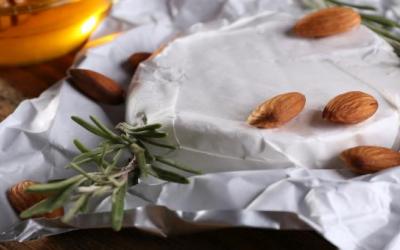A laboratory for microclonal propagation of plants has opened at the Buryat State Agricultural Academy

The oldest university in Buryatia continues to take big steps towards promising areas of development. The Faculty of Agronomy of the Belarusian State Agricultural Academy received new equipment for clonal micropropagation of plants, which became possible thanks to the inclusion of the Belarusian State Agricultural Academy in the “Priority 2030” program.
Thanks to this laboratory, it is possible to obtain healthy fruit and berry crops regardless of the time of year. And to be more precise, grow them even by a certain date under “in vitro” conditions - in a test tube.
“New equipment, and these are modern microscopes, laminar flow boxes, germination cabinets , special spectral lamps,consumables have already arrived. The specialized auditorium has been completely renovated and is ready for use. The staff of the future laboratory is already staffed by our promising graduates, this week they completed training under the guidance of a senior researcher at the SibNIIRS branch of the Novosibirsk ICG, next year they will continue their training in other cities of Russia,” emphasizes the dean of the Faculty of Agronomy Arsalan Mankhanov.
In Buryatia, vegetable growing continues to actively develop, both among the population as a whole and in the commodity sector. But due to sanctions, it is difficult to find healthy and clean planting material. And there is now a solution to this issue. The BSAA plans to start with potatoes, obtaining minitubers for propagation of the super-elite. After receiving permission from the originators, healthy planting material of the “second bread” will be propagated at the agricultural academy.
“This is not the work of one day or even one year; in order to become a plant propagation center and have an impressive amount of planting material, we will need about 5 years, but this is a short period of time in selection. And taking into account the advantages of microclonal propagation, in the form of an unlimited number of copies of the original plant and solving the issue of import substitution of seeds, this area of work has great prospects,” says Arsalan Dasheevich. In the future, the laboratory plans to propagate fruit and berry and medicinal plants, as well as rare Red Book plants of Buryatia.
Read together with it:
- "Only a comprehensive approach can help reduce risks." Gomel Region firefighters have stepped up fire prevention efforts.January 21, Gomel. The number of fires in the Gomel Region has doubled since the beginning of the year. Rescuers have stepped up their preventative efforts, Veronika Matusevich, official spokesperson for the Gomel Regional Department of the Ministry of Emergency Situations, told BelTA. The southeastern region is seeing an increase in fires. Sometimes, daily reports add dozens of fires. The emergen...




























































